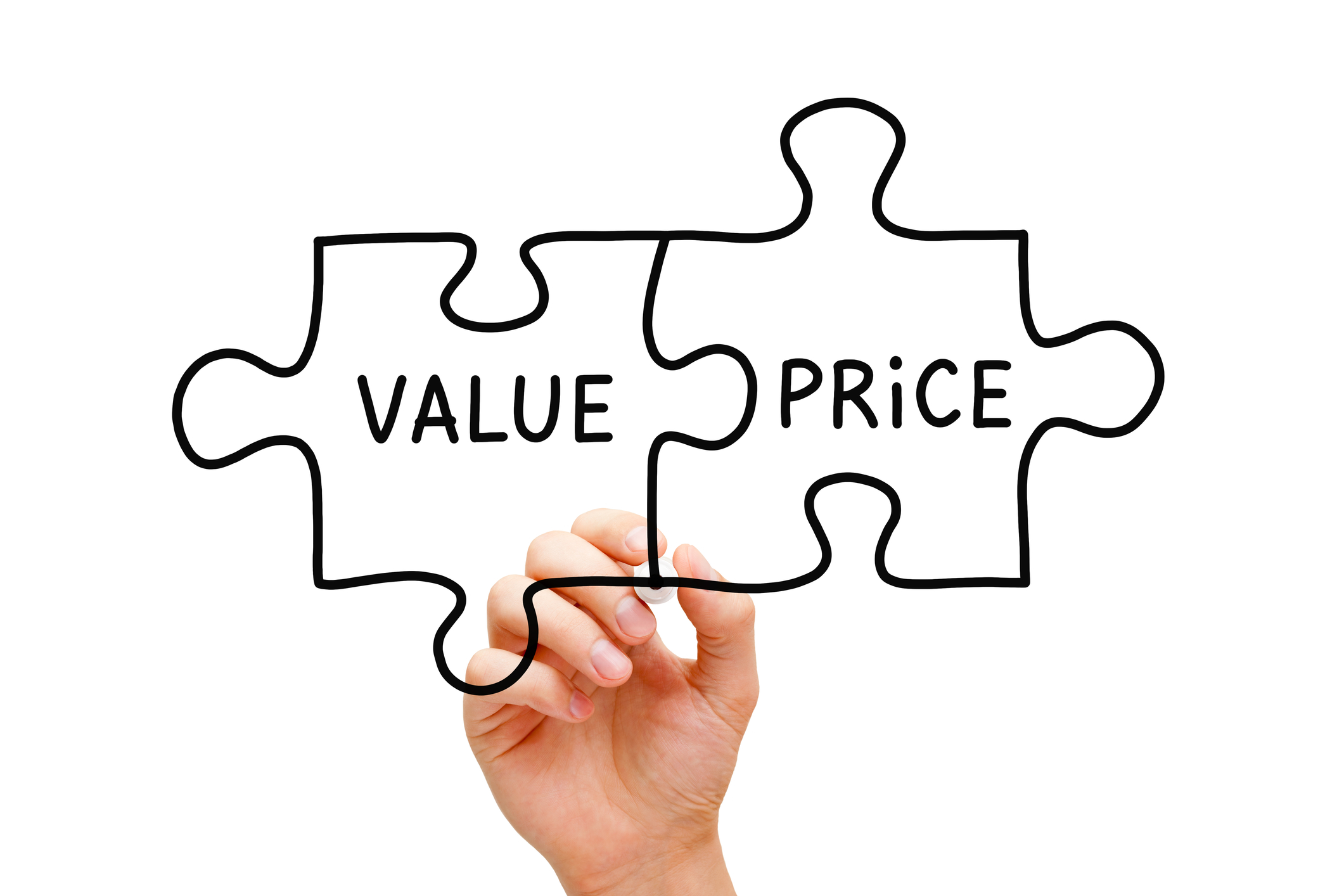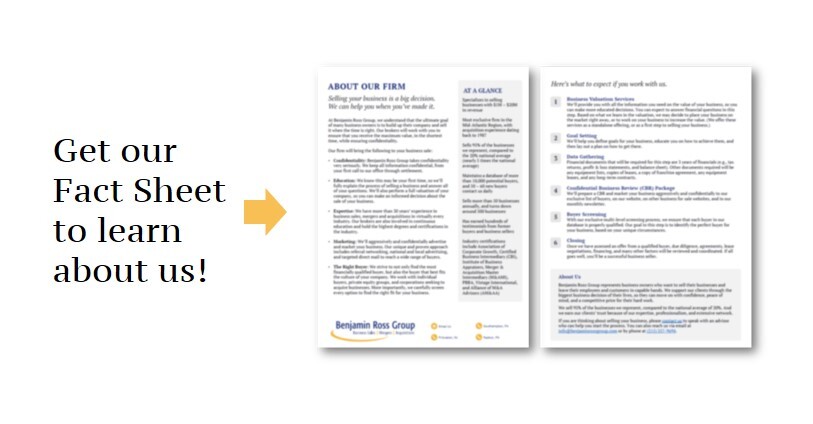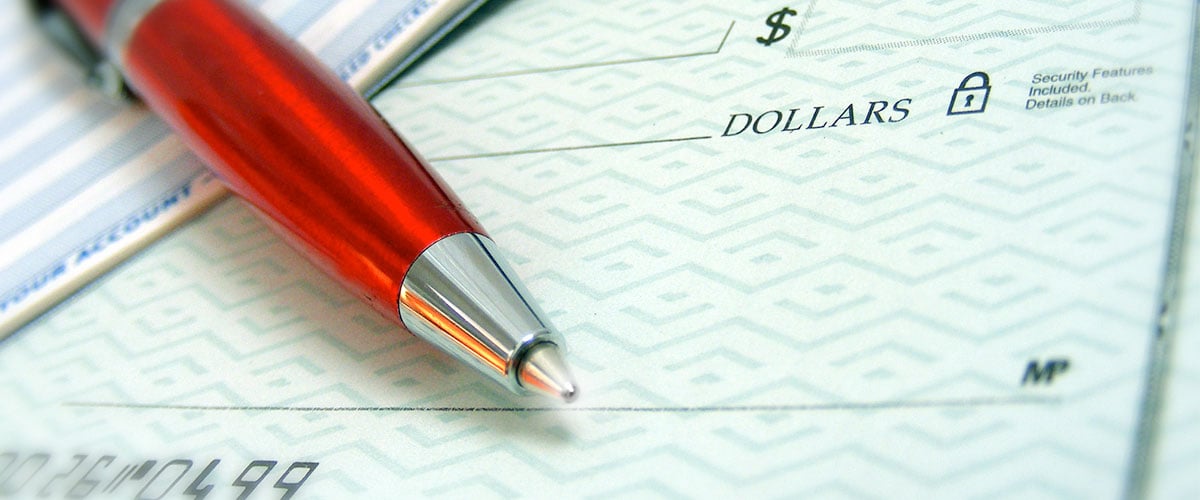Few business owners have an accurate idea of the value of their business. More than half the time, business owners set asking prices that are unrealistically high, and some set prices that are too low. Whether you think your business is worth $2 million or $20 million, you need an expert opinion for reference purposes before you begin to discuss or justify a selling price that makes sense.
The first thing most prospective sellers ask us is “How much is my business worth?”
Accurately valuing a small business is often the most challenging part of the process for prospective sellers. For most business owners, assessing an accurate price for their business is tough; most really have no clue. We hear the same comments from sellers all the time: “I heard that a guy in my industry sold his company for five times revenues.” Or, “everyone in my business gets as least seven times profits.” Unfortunately, without exception, we have yet to speak with a current business owner who has an idea on the value of his/her business grounded in reality.
Other arguments we hear that a business owner uses to support the value of the business include the number of years it has been open, the amount of gross sales, its location, or, the business provides a similar range of services to its competitors but does one or two things uniquely making it worth more. Then there’s our favorite line, “it’s got a lot of potential.” The emotional attachment to a business, the years of hard work, the vision for the future…None of these belongs in the equation for setting a sale price.
One goal when you’re selling your business is to get as much money as possible. There’s temptation to overprice — there’s always a chance you’ll strike gold. Right? Technically, yes. But that doesn’t mean testing the market by setting your business’s price above what the business is worth is a good strategy. In fact, there are numerous reasons not to test the market this way:
1. You won’t get offers (but other businesses might)
It’s great to be a good business owner, but unintentionally sacrificing your sale to help another business owner sell their business might be going a bit far. When you price too high, you’re helping sell the other similar businesses in that industry that have listed for less. After seeing your high-priced business, buyers may be eager to get the better priced business — even if they liked your business operation better.
2. You lose credibility
Buyers are savvy. They’ve usually done the research and have a ballpark idea of what businesses are worth. When you price too high, buyers might not even look at your business.
3. Not every buyer likes to play Let’s Make a Deal
Some sellers post a high price because they expect to engage in negotiations. The problem with this tactic? If buyers overlook your business because it’s out of their budget, there will be no one to negotiate with. While some buyers might relish the negotiation process, a solid buyer respects and appreciates a business priced just right.
4. Beware of overly optimistic brokers
Some business owners who price high are given false hope by brokers who are uncomfortable telling their clients the truth. Beware of “sign brokers.” What’s a sign broker? Some brokers may agree to any price you want just to get you to sign up with them, only to beat you up on price at a later date. Come to realistic expectations of what the business will likely sell for before you list.
5. Your business gets stale
If your business is on the market longer than 30 days, buyers will start wondering whether something’s wrong with it. Business brokers refer to this as a stale business. When you price your business too high, all you’re doing is putting blood in the water for the sharks who will wait until you lower your price.
6. People won’t even see your listing
People generally set up search parameters by price when looking online for a business.
Let’s say your business is worth $1,000,000, but you’re asking $1,300,000. You won’t capture buyers who search for businesses within the $700,000 to $1,000,000 range. But if the business were priced properly, it would show up in the buyer’s search results.
7. The business won’t appraise at the high price
If you’re selling to buyers who are getting a loan — in other words, most buyers — the lender will need a business valuation. When the valuation does not support your sales price, then your buyer won’t get the loan. If you’re set on a higher price, consider making improvements that add to the bottom line and of course, add worth.
Meeting with a business advisor who has the experience in selling businesses will be very helpful in determining the value and sale price of your business. Sellers should approach the sale of their business with a fair understanding of the business’s past successes and failures and reasonable expectations about the price. The more you prepare yourself with facts, the more success you’ll have when you sell your business. Don’t look for a buyer to pay you what you think your business is worth or to reimburse you for all the hard work you’ve put into your business. Be realistic when you are selling your business and do your homework before you go to market.
Learn More About Selling Your Business With Us
Contact us today to speak with a professional business broker who can help you start the process of selling your business. If you’re interested in learning more about us, you can click on the image below and download our free Fact Sheet, which gives you further information about our firm:
.png)
.png?width=497&height=122&name=Untitled%20design%20(19).png)







